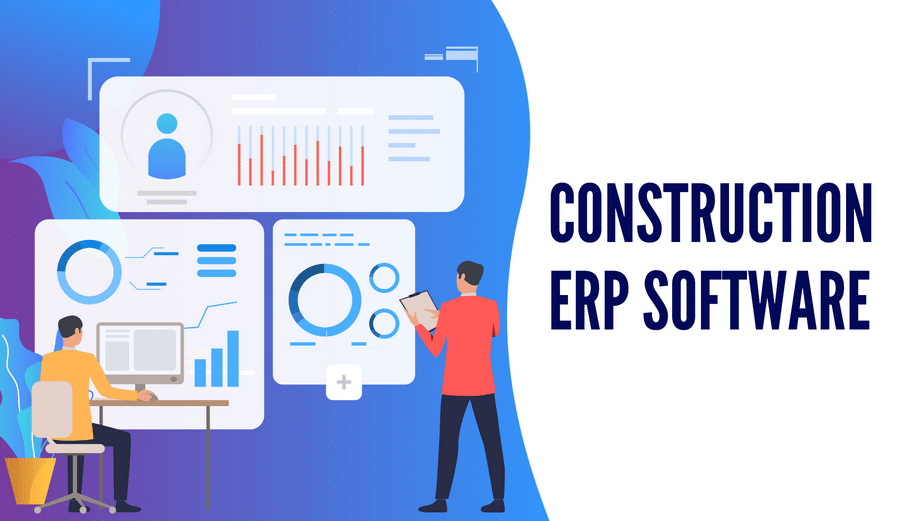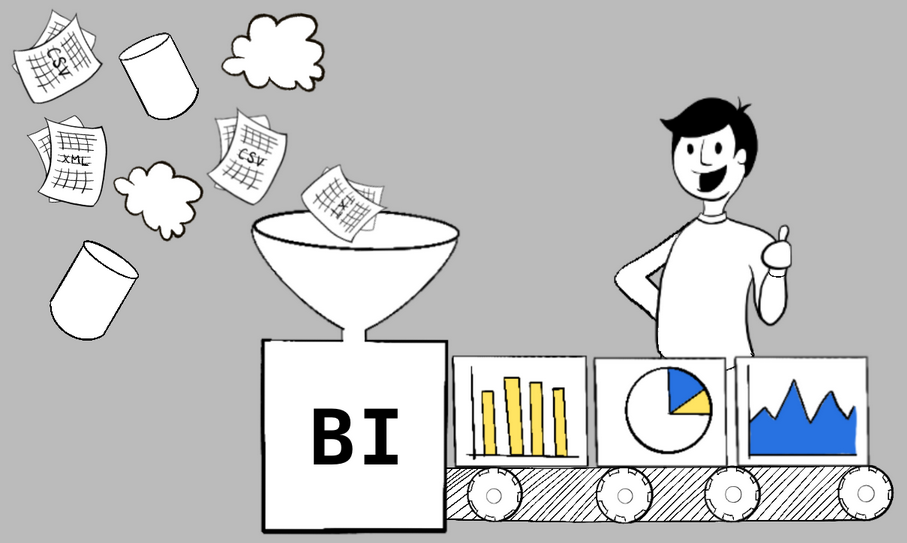Introduction to Construction ERP Software – Construction ERP (Enterprise Resource Planning) software is a specialized solution designed to cater to the unique needs of the construction industry. It integrates various functions and processes within a construction company, providing a centralized platform for managing projects, resources, finances, and other critical aspects of the business.
Understanding the Need for ERP in Construction Industry
Streamlining Operations
Construction projects involve numerous tasks and activities that need to be coordinated effectively to ensure timely completion. ERP software streamlines these operations by automating repetitive tasks, scheduling resources efficiently, and optimizing workflows.
Enhancing Project Management
Effective project management is crucial in the construction industry to ensure that projects are completed on time, within budget, and according to specifications. Construction ERP software offers advanced project management tools that enable project managers to plan, execute, and monitor projects more effectively.
Improving Communication and Collaboration
In a construction project, effective communication and collaboration among various stakeholders are essential for success. Construction ERP software facilitates communication by providing a centralized platform where team members can share information, collaborate on documents, and communicate in real-time.
Key Features of Construction ERP Software
Construction ERP software comes with a wide range of features and functionalities tailored to the specific needs of the construction industry. Some of the key features include:
Project Management Tools
Construction ERP software includes tools for project planning, scheduling, resource allocation, budgeting, and tracking progress. These tools help project managers streamline project execution and ensure that projects are completed on time and within budget.
Resource Planning and Allocation
Effective resource planning and allocation are critical for the success of construction projects. Construction ERP software helps companies optimize resource utilization by providing insights into resource availability, skill sets, and workload.
Financial Management
Construction ERP software includes robust financial management modules that enable companies to track project costs, manage budgets, handle invoicing and billing, and generate financial reports. This helps companies maintain financial transparency and control over their projects.
Document Management
Construction projects generate a vast amount of documentation, including contracts, drawings, permits, and change orders. Construction ERP software offers document management capabilities that allow companies to organize, store, and retrieve documents easily.
Reporting and Analytics
Construction ERP software provides powerful reporting and analytics tools that enable companies to gain insights into their projects, finances, and operations. These tools help companies make informed decisions and identify areas for improvement.
Benefits of Implementing Construction ERP Software
Increased Efficiency and Productivity
By automating repetitive tasks, streamlining workflows, and providing real-time insights, construction ERP software helps companies improve efficiency and productivity.
Cost Reduction
Construction ERP software helps companies reduce costs by optimizing resource utilization, minimizing rework, and avoiding costly delays and errors.
Improved Decision Making
With access to real-time data and insights, construction ERP software empowers companies to make informed decisions quickly and effectively.
Enhanced Client Satisfaction
By delivering projects on time, within budget, and according to specifications, construction ERP software helps companies enhance client satisfaction and build stronger relationships with their clients.
Challenges in Implementing Construction ERP Software
Resistance to Change
One of the biggest challenges in implementing construction ERP software is resistance to change from employees who are accustomed to traditional methods of working.
Integration Issues
Integrating construction ERP software with existing systems and processes can be challenging, particularly if the software is not compatible with other tools and technologies used by the company.
Data Security Concerns
Construction ERP software stores sensitive information, including financial data, project plans, and client details. Ensuring the security and confidentiality of this data is essential to protect against cyber threats and data breaches.
How to Choose the Right Construction ERP Software
Assessing Business Needs
Before selecting construction ERP software, companies should assess their specific business needs and objectives to ensure that the software aligns with their requirements.
Evaluating Features and Functionality
Companies should evaluate the features and functionality offered by different construction ERP software solutions to determine which ones best meet their needs.
Scalability and Flexibility
It’s essential to choose construction ERP software that is scalable and flexible enough to grow with the company and adapt to changing business requirements.
User Interface and Ease of Use
Construction ERP software should have an intuitive user interface and be easy to use, even for employees who are not tech-savvy.
Case Studies: Successful Implementation of Construction ERP Software
[Include examples of companies that have successfully implemented construction ERP software and benefited from it.]
Conclusion
Construction ERP software offers a comprehensive solution for managing projects, resources, finances, and other critical aspects of the construction business. By streamlining operations, enhancing project management, and improving communication and collaboration, construction ERP software helps companies increase efficiency, reduce costs, and improve decision making.
However, implementing construction ERP software comes with challenges, such as resistance to change, integration issues, and data security concerns. By carefully evaluating their needs, choosing the right software, and addressing these challenges proactively, construction companies can maximize the benefits of ERP software and stay competitive in the industry.
FAQs
What is construction ERP software?
Construction ERP software is a specialized solution designed to cater to the unique needs of the construction industry. It integrates various functions and processes within a construction company, providing a centralized platform for managing projects, resources, finances, and other critical aspects of the business.
What are the key features of construction ERP software?
Some key features of construction ERP software include project management tools, resource planning and allocation, financial management, document management, and reporting and analytics.
How can construction ERP software benefit my company?
Construction ERP software can benefit your company by increasing efficiency and productivity, reducing costs, improving decision making, and enhancing client satisfaction.
What are the challenges in implementing construction ERP software?
Challenges in implementing construction ERP software include resistance to change, integration issues, and data security concerns.
How do I choose the right construction ERP software for my company?
To choose the right construction ERP software, assess your business needs, evaluate features and functionality, consider scalability and flexibility, and prioritize user interface and ease of use.


